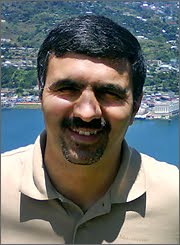There are companies, products, services, religions, societies, organisation that are quite successful in marketing and selling their products to people and some not. What is the ultimate secret of success?
-We love money and we want to have a better income. Why? Because we feel good with more money!
-We love having power (e.g. become president or company manager). Why? Because we feel good with having the power!
-We love our religions, regardless what it is, or even it is secularism. Why? Because we feel good with the religion!
-We love to buy things (cars, telephones, houses, clothes, etc.). Why? Because we feel good to have them!
-We get married, or stay alone. Why? Because we feel good with it.
-We see some successful people. What is the secret of their success? Because they had good feeling with what they did and kept working without giving up!
-We sometimes have war and kill each other. Why? Because, the decision makers feel good with having more power and perhaps killing the enemies.
-and so on....
Think about whatever we do and what we believe into! The ultimate reason is that we feel good with it. It is a major secret of success that some companies, religions etc. apply. You should feel good with their products and services, so you invest in it!
Can we apply this concept to improve our environment? The tricky point is that we should provide a reason that people and decision makers feel good with our suggestions. They should feel better with it comparing to what they do to damage it. Let see if we succeed!
-We love money and we want to have a better income. Why? Because we feel good with more money!
-We love having power (e.g. become president or company manager). Why? Because we feel good with having the power!
-We love our religions, regardless what it is, or even it is secularism. Why? Because we feel good with the religion!
-We love to buy things (cars, telephones, houses, clothes, etc.). Why? Because we feel good to have them!
-We get married, or stay alone. Why? Because we feel good with it.
-We see some successful people. What is the secret of their success? Because they had good feeling with what they did and kept working without giving up!
-We sometimes have war and kill each other. Why? Because, the decision makers feel good with having more power and perhaps killing the enemies.
-and so on....
Think about whatever we do and what we believe into! The ultimate reason is that we feel good with it. It is a major secret of success that some companies, religions etc. apply. You should feel good with their products and services, so you invest in it!
Can we apply this concept to improve our environment? The tricky point is that we should provide a reason that people and decision makers feel good with our suggestions. They should feel better with it comparing to what they do to damage it. Let see if we succeed!


.bmp)






